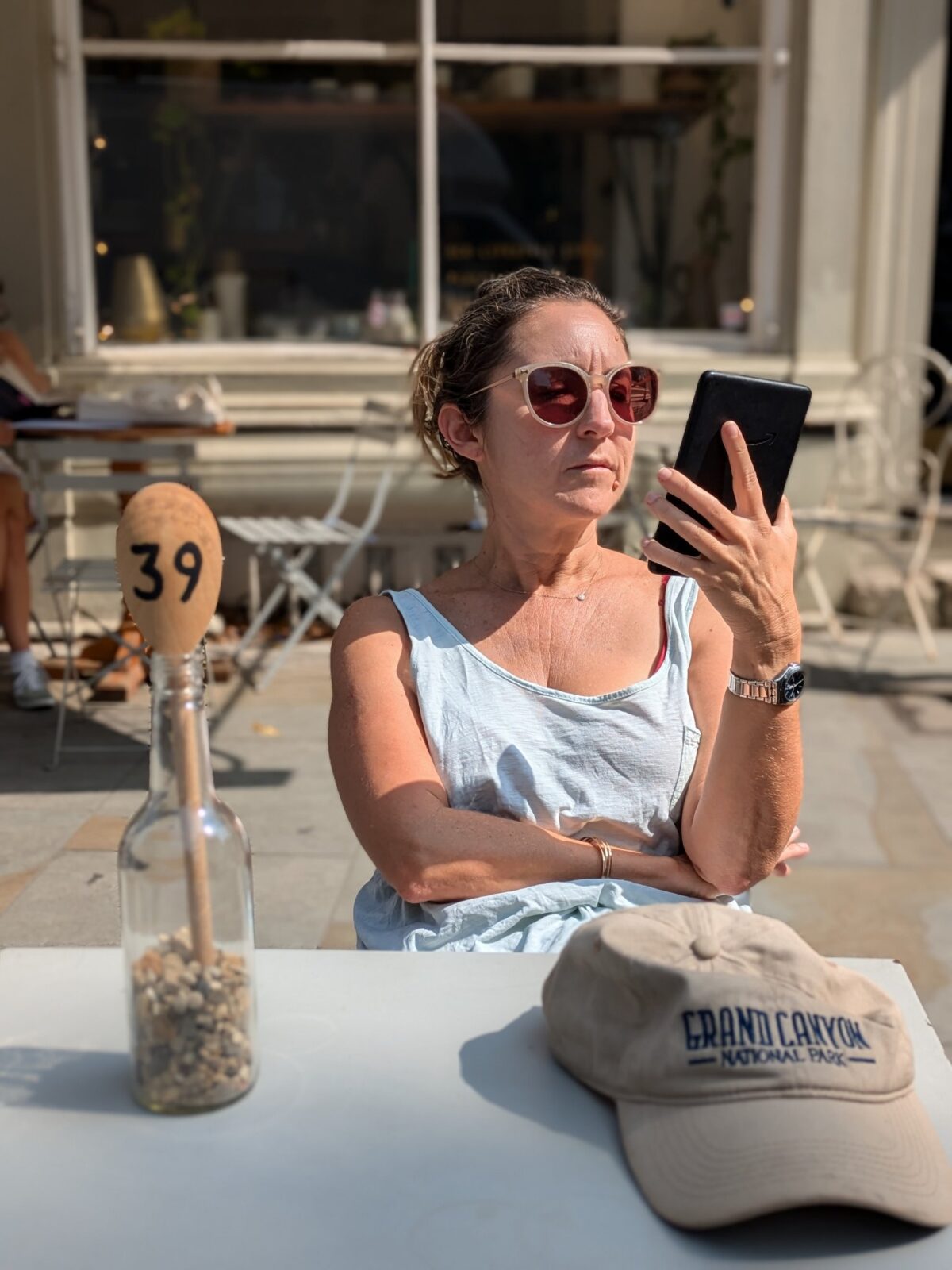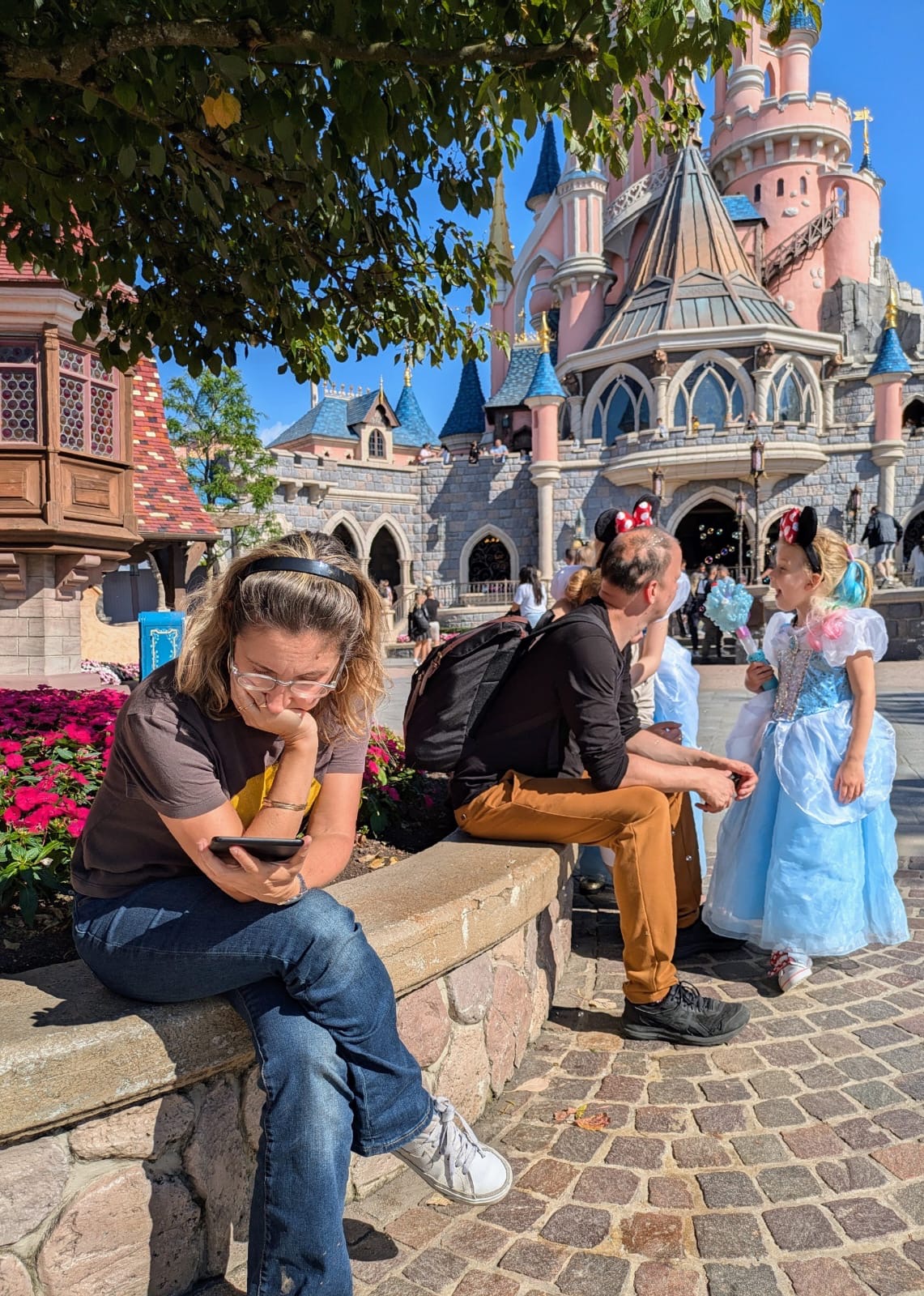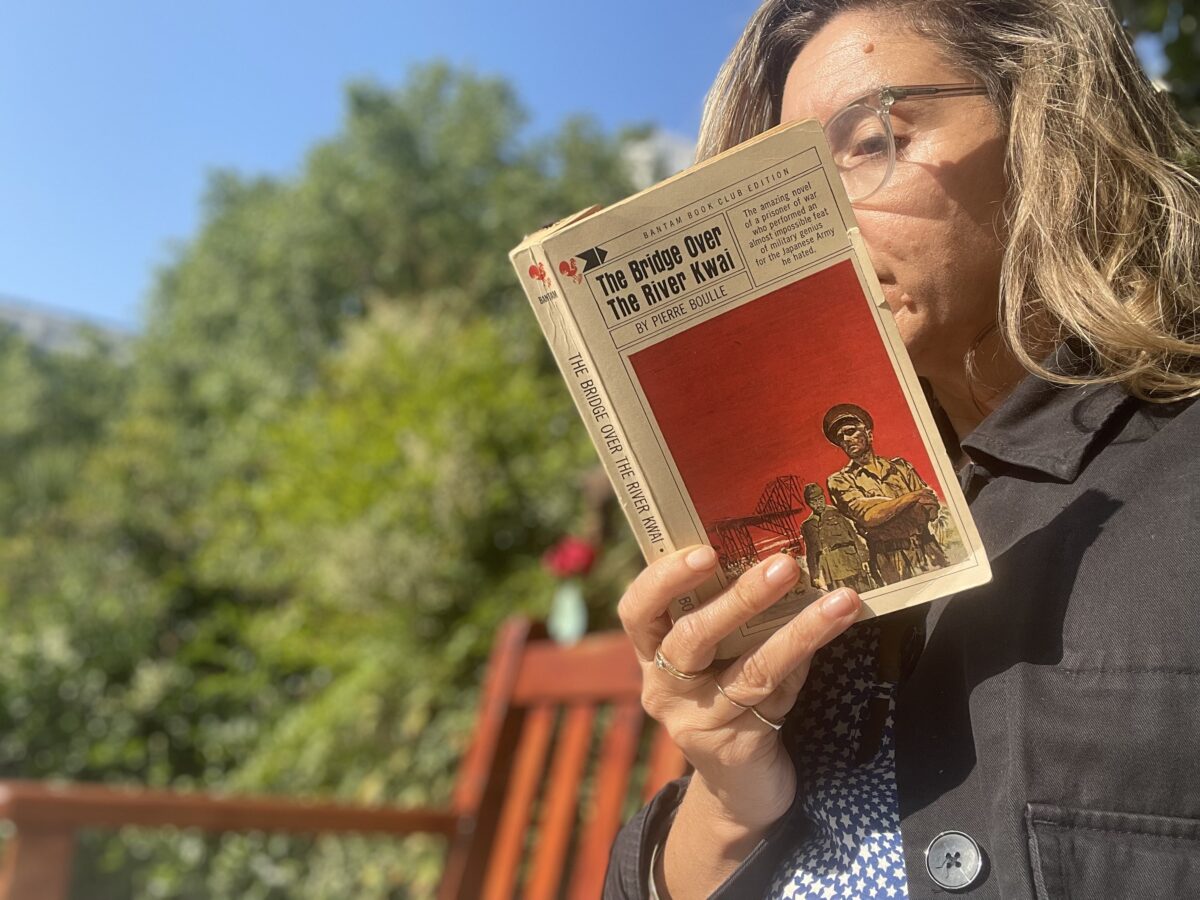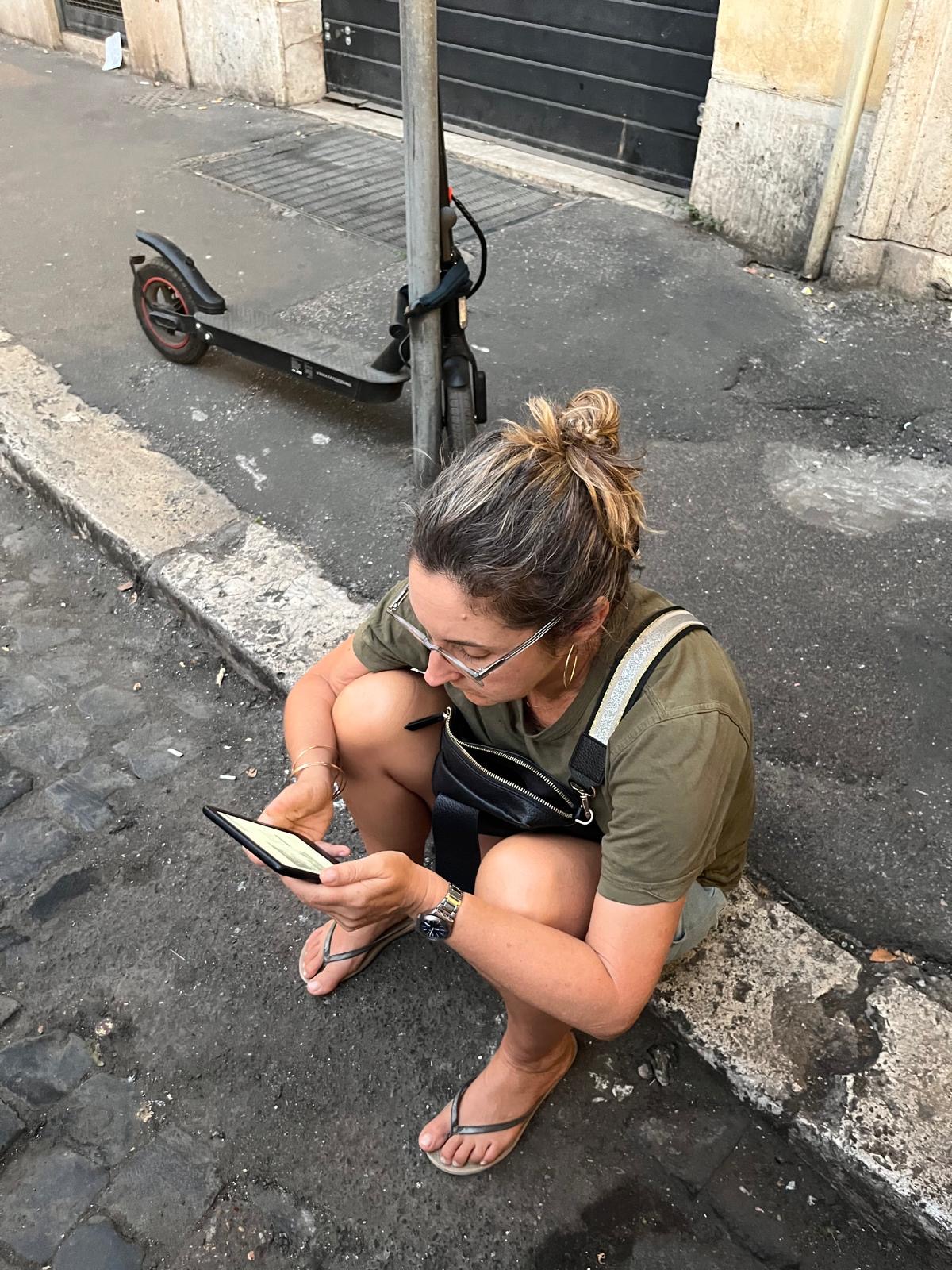I enjoyed this author’s first book, ACTS OF DESPERATION, and read an interview with her where she denigrated it, saying this one – ORDINARY HUMAN FAILINGS – was in her opinion much better. I am amazed. ACTS OF DESPERATION was grippingly grim, but had a enjoyably comic energy and a general direction towards sanity. ORDINARY HUMAN FAILINGS on the other hand is just grim. Like, so grim it starts to feel kind of ridiculous. It’s about child murder (beloved topic of UK cultural life), so obviously I did not expect it to be cheerful, but wow: every single person in it is a venal and depressing failure. I mean all of them. From the damaged mother, to her brother, the tragic alcoholic, to the money-grubbing journalist who writes about them – they are all victims or perpetrators. The only person who actually tries to do something positive is the gran, but don’t worry, there is a long explanation of how she only does this because she was not loved enough as a child. I mean, okay. I just had to quit it.
Tag: fiction
THE MINISTRY OF TIME by Kaliane Bradley
This is SUCH a fun book. It tells the story of a government program that manages to bring a handful of people from the past (specifically 16th, 17th, 18th centuries) into the present day. SPOILER ALERT, it is mostly a kind of rom-com about the relationship between a Victorian polar explorer and his present day minder, a government employee. All time travel books run the risk of getting into but-what-if-I-killed-my-grandfather territory, and I won’t say this book doesn’t get there. But who cares when it is so fun. Try this:
“He was introduced to the washing machine, the gas cooker, the radio, the vacuum clear.
‘Here are your maids,’ he said.
‘You’re not wrong.’
‘Where are the thousand-league boots?’
‘We don’t have those yet.’
‘Invisibility cloak? Sun-resistant wings of Icarus?’
‘Likewise.’
He smiled. ‘You have enslaved the power of lightning,’ he said, ‘and you’ve used it to avoid the tedium of hiring help.’
‘Well,’ I said, and I launched into a pre-planned speech about class mobility and domestic labour . . . and by the end I’d moved into the same tremulous liquid register I used to use for pleading with my parents for a curfew extension.
When I was finished, all he said was, ‘A dramatic fall in employment following the ‘First’ World War?’
‘Ah.’
‘Maybe you can explain that to me tomorrow.'”
That gives you a good sense. It’s a deeply thought though culture-clash story and I really enjoyed it. I don’t believe it would really be possible for a Victorian man to have a happy relationship with a contemporary woman, but there you go, that is just because I am a miserable feminist killjoy and takes nothing away from the story.
BANAL NIGHTMARE by Halle Butler
I liked this author’s last rage-filled book, THE NEW ME, and I like this one too. THE NEW ME was about an angry woman in Chicago who concludes she has wasted her twenties. BANAL NIGHMARE is about a pretty similar woman in her early thirties who has left Chicago to return to her hometown.
The main character is recovering from a break-up, and I guess the book functions as a prism for looking at the particular unhappiness that comes with deciding in early mid-life that you are going to have to start again. Every romantic relationship in the book is a mess, which makes it pretty depressing (and unlikely) reading. But I still enjoyed the miserable, defeated energy of the book.
LONG ISLAND COMPROMISE by Taffy Brodesser-Akner
God I loved this book. It is a family drama about the long term impact of a kidnapping, but who cares what it was about. It was the kind of book that as soon as I open it I know I am going to like it; it basically deletes you out of your life for hours at a time. Enjoy this, about an aggrieved woman about to give the eulogy at her mother’s funeral:
. . . Marjorie, who was normally a seismograph for people’s regard of her, had quickly become drunk on the wide-scale pronouncement of the category of grievances she frequently referred to (in crowds smaller than this, mostly gathered on folding chairs in a circle) as ‘her truth.’
The category of grievances that were her truth. LOL!
I loved the pull of the plot, but almost more I loved the weird freedom of the narrative voice. I’ll end with her describing some McMansions:
. . . And the details were atrocious: curling wrought-iron gates and shutters that couldn’t possibly work and stone-ish siding and my god, the columns: Corinthian, Doric, Ionic, tragic.
Now here is a separate paragraph just for the doors. The doors on these homes were huge. . .
THE FUTURE by Naomi Alderman
This is a fun novel in which the near future is densely imagined. I was not so much sold on the plot, which for me was a bit too close to wishful-thinking. If I was to summarize reductively, it pushed the idea that if we could just get control of Big Tech we could somehow solve the climate crisis.
I am not sure anything can solve the climate crisis at this point. I just hope we can hold on till human population peaks in 2100 and then it somehow heals itself as our species begins to decline back down to more rational numbers. In any case, I admired the density of the imagining, and loved some of the ideas. Try this:
“. . . . the sun will go supernova and boil the seas and we’re just one stinking species and species live and die, that’s what we do. There’ll be no audience and no final judgement and no redeemer is going to liveth and no one will come along at the end of the show and tell us our score and what we could have won.”
I like that idea, that I’ll never find out about the wonderful alternate life I could be living if only I’d made better choices.
THE BRIDGE OVER THE RIVER KWAI by Pierre Boulle
I’m afraid I couldn’t finish this one, despite its truly wonderful cover and the fact that the edition I have is one of my favourite kinds, falling apart and with brown pages.
THE BRIDGE OVER THE RIVER KWAI tells about the Japanese use of Allied soldiers and forced labour to build a railway in WWII, a terrible project that killed about twenty thousand people. This fictionalized version had a tight plot in this interesting setting, but it was just too silly for me. It’s very much a mid-century male fantasy of tough geniuses.
Boulle was a veteran of forced labour himself, and I would have liked to read a book about his actual experiences. Apparently life being what it is, he did write one, called MY RIVER KWAI, but it has not endured enough to even merit a Wikipedia entry, while this kind of trashy version sold in the millions. Well done to him: I see he was so poor he was practically homeless after the war, so I’m glad he made some money. He then went on to write a wildly different book – wait for it – it’s PLANET OF THE APES (!?!) so he certainly sorted himself out
THE TRUE HISTORY OF THE KELLY GANG by Peter Carey
Here’s a book so good it’s almost depressing, like: how has this Carey guy done this?
It tells a fictionalized version of the life of the Australian bank robber Ned Kelly, in the imagined voice of Ned Kelly. There’s not a lot in the way of punctuation, and sometimes we run dangerously close to getting a bit cute, but overall it’s amazingly successful. Try this:
“Inside the shanty were much laughing and singing the shadows flitting across the curtains. Harry Power were dancing I heard not a word about the bunions he otherwise were whingeing about night and day. I never knew a man to make such a fuss about his feet.”
Or this, about a bushfire:
“God willing one day I would tell that baby the story of the apple gums exploding in the night the ½ mad kangaroos driven down before this wrath into the township of Sebastopol . . “
Or this:
“. . a number of Chinamen was engaged with a game of mahjong on a wide wooden plank. These was hard looking fellows all dried out and salted down for keeping.”
It takes you right inside his mind, very successfully. He grows up in poverty, the child of a transported man, and very much at the mercy of landowners and their corrupt police. He is almost forced into the life of the outlaw, and is greatly admired by the poor for his success. I always want to believe the life of an outlaw is glamorous, but this book shows what I guess I always suspect, which is that in fact it is stressful and difficult and given the choice we’d all rather be landowners. A fantastic book.
ALL FOURS by Miranda July
I’m not sure I’ve ever read a book about the menopause before, but here we are. Enjoy this, the protagonist on her age, which is in many ways the central problem of the book:
“I was no closer to being sixty-five than twenty-five, but since time moved forward, not backward, sixty-five was tomorrow and twenty-five was moot. I didn’t think a lot about death, but I was getting ready to. I understood that death was coming and that all my current preoccupations were kind of naïve; I still operated as if I could win somehow. Not the vast and total winning I had hoped for in the previous decade, but a last chance to get it together before winter came, my final season”
‘The vast and total winning,’ we’ve all been there, LOL.
She decides to go on a roadtrip from California to New York, which her husband thinks will be a good challenge for her. About a half hour in, she checks into a motel and just impulsively decides to hang out and decorate the room. She doesn’t tell her husband. This part I loved. The protagonist feels no need to explain or pathologize why she is doing it: she just follows her impulse. I found this wonderfully fun and free-ing. She then SPOILER ALERT falls for a young guy who works at the local Hertz. At this point, things get a bit more predictable, as we get into how she navigates having an open relationship. I found this part a bit slow, maybe because it’s a story I feel I’ve heard a few too many times before. Poly people are much like vegans in being overly willing to tell you all about it. But even this was enlivened by the intense amount of menopause and more general midlife panic she weaves in. It shows how few women have really been allowed to write across history, that this experience should be so rarely described. I love the idea that it might be an opportunity to be more free, possibly even wildly more free. Though I’m not sure I’m signing up for an affair with the car rental guy.
GREEN DOT by Madeleine Gray
Here is how this book begins:
“For some years of my twenties I was very much in love with a man who would not leave his wife. For not one moment of this relationship was I unaware of what every single popular culture representation of such an arrangement portended my fate to be.
Having done well in school but having found little scope in which to win things since then, it is possible that my dedication to this relationship was in fact a dedication to my belief in myself – that I could make a man love me so much that he would leave what he had always known, all his so-called responsibilities, purely to attain my company forever. I offered nothing but myself, you see.”
That, in two paragraphs, is what the book is about. It is pretty sad, overall. Especially sad is the lack of cynicism of the man, who does genuinely seem to love her and to suffer over his inability to choose.
As the author points out, one reason she got so interested in him was because she had no other interests. This part, perhaps unfairly, I just found annoying. Here she is on how all her old schoolmates are getting jobs:
“Obviously we would all need money to feed and house ourselves when school was over; I didn’t not forsee that. Maybe for most of us this would mean having to do stuff for companies or whatever happened in business. KPIs? P&Ls? Circling back? But why were we all talking like the way we wanted to subsist was via indefinitely spending most of our waking hours doing something with very little relation to the formation and development of ourselves, a development which, until this point, we’d been told by our teachers and parents was very important?”
It is a bizarrely youthful contempt for a whole huge aspect of the human experience, which is world of commerce. A not unimportant part of the world, if you happen to live in late capitalism. And she does, oh god she does. Here she is having lunch one day:
“Eating this dry sushi, I am utterly dejected”
So she has standards as to the wetness of her sushi but somehow still feels she should not be weighed down by such petty matters as making an income.
It was a gripping story of terrible choices and I enjoyed it.
THE INHERITORS by William Golding
Here is a book about the meeting of neanderthals and homo sapiens, told from the neanderthals perspective. Unsurprisingly, our species does not come out of it looking good. It really is incredible how our first instinct is to kill, and our second is to abduct. You do feel sorry for these Neanderthals.
The first part is the most successful, where you follow a band of 7 Neanderthals as they move from their winter to their summer locations. There is an impressive inhabiting of a mind that (from our perspective) is sort of half-way there. Then they meet the ‘bone-faced men,’ who surprise them by being bone-faced, and even more by existing, as the group had previously thought they were the only bipedals in the world.
From very first meeting you know it is going to end badly for someone, with the Neanderthals watching with interest as ‘small straight twigs’ are thrown at them by the bone-faced men. These are of course arrows, and it goes downhill from there.
I have to admit I gave up close to the end. There was a very very long section in which the Neanderthals were watching the early humans go about daily life in a clearing. I appreciate Golding was having fun sharing his research with us but I got bored. However, that said, I still enjoyed it.
PS: I learnt from the introduction – did you know Golding’s other book, LORD OF THE FLIES was widely rejected by agents while in draft?










